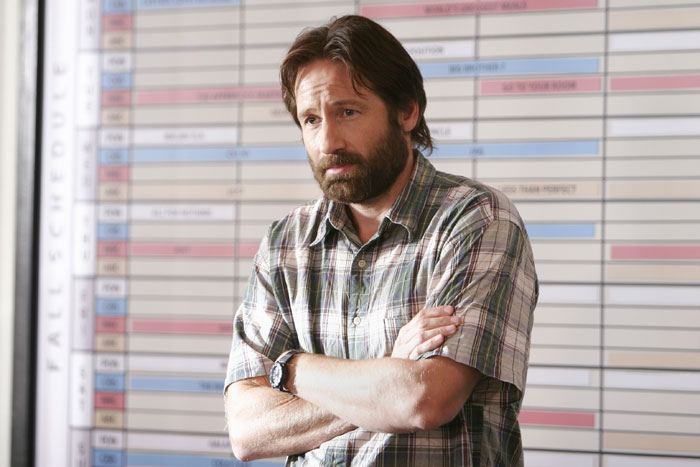Q: The box-office returns for “The Golden Compass” last weekend were modest at best. The film is estimated to have cost more than $150 million and will have a hard time making its money back. The financial disappointment could be catastrophic for New Line Cinema. Not to mention the fact that any chance of an adaptation of The Subtle Knife and The Amber Spyglass (rest of the trilogy) are now slim to nil. Since you gave the film a positive review, what is your opinion of the box-office returns?
Robert Hamer, Vallejo, Calif.
A. The box office was wounded by attacks of religious groups who said it might inspire kids to read the Philip Pullman novels, which they said were satanic, etc. The criticism was led, predictably, by the Catholic League and its talkative president, William Donohue, and was made before the film was released. Wikipedia reports: “The associate editor of the Catholic magazine America, the Jesuit priest James Martin, says the Catholic League ‘frequently speak(s) without seeing or experiencing what they are critiquing, and that undercuts their credibility.’ ” Any bad buzz on a family film can be mortal, and that seems to have been the case this time.
Q. You asked how they translate the obscure symbols on the Golden Compass. In the books, the symbols had infinite meanings, depending on their combination and context. After many years of study, the scholars of Lyra’s world have managed to decipher the essential concepts behind each individual symbol but haven’t gotten very far in exploring their interconnections; the complexity of the task is astronomical. Lyra seems to instinctively know what the compass is telling her, at one point in the book explaining one of the messages by deconstructing it in impossible detail. That’s why she was given it, actually. It also makes her the archetypal Chosen Child that these stories seem to love. Mate Srsen, Blace, Croatia
A. Why am I thinking of the tarot deck, and especially when the reader reassures me that Death does not mean Death?
Q. Doesn’t the idea of a soul in any form (in “The Golden Compass” as a daemon) imply a higher power? Other supernatural concepts in the movie such as dust and witches also imply such. How does this reconcile with the supposed anti-religion sentiment in this movie? Shimmy Braun, Chicago
A. The movie has been put through the Hollywood spin cycle to remove all traces of author Philip Pullman’s theology. As I understand it, however, he does not rule out the supernatural, but simply posits a God who has grown old and weak. Question: If Pullman’s God created man in his image, does He have a daemon?
Q. As a member of the Writers Guild of America, I’d like to get your take on our current strike. Do you think the Internet is a lucrative outlet for films and TV shows? Will it continue to be in the future? Are the writers entitled to a share of the profits made when movies and television are shown on the Internet? Nancy de los Santos, Los Angeles
A. Income from streaming on the Internet is currently negligible. But it may become a considerable, even dominant, distribution channel in the future. The studios obviously think so. That’s why they’re taking a hit of millions of dollars to fight your strike. The studios should do the decent thing and concede that their “product” is created by artists and craftsmen who deserve a fair share of the income.
Q. Martin Scorsese’s film allegedly based on a “lost” Hitchcock screenplay, which you wrote about last week, was actually an ad for the liquor company whose product is featured inside the locked case at the end of the film. I am surprised you didn’t pick up on this. Justin Weiss, Tokyo
A. I did but went along with the joke, not wanting to spoil the fun of readers. For the same reason, I didn’t point out that the score that “sounded” like Bernard Herrmann was in fact his score for “North by Northwest.” I thought maybe my word “purported” would be a subtle signal.
Q. My fiance passed away unexpectedly last month. He was only 23. My question is: What movie or movies of lost love, or love or death in general, have you found to be the most touching? I hope I am not asking too much. I know nothing can take away pain this deep, but I would just like to know your opinion. There are many grieving, lonely and heartbroken people out there. Name withheld
A. No movie can heal your grief. But you may find one that will stand by you as you endure it. Three Japanese films come to mind: Kurosawa’s “Ikiru,” about a dying man who makes a final statement in his life; Ozu’s “Tokyo Story,” about an old man who finds acceptance after the death of his wife, and Kore-Eda’s “Maborosi,” about a young wife whose husband is taken meaninglessly from her. I also enormously admired everything but the ending in Vincent Ward’s “What Dreams May Come,” which starred Annabella Sciorra as a woman who loses her husband (Robin Williams). The movie is so breathtaking it deserves a more fearless conclusion.
Q. I recently had the opportunity to see “La Vie en Rose” and must say it is a great film. My question: Do you think that Marion Cotillard will get nominated for her portrayal of Edith Piaf? She was amazing. What a transformation she underwent to bring this story to life. My wife and I watched the DVD bonus material, and they gave credit to the fantastic makeup work, like the old movies — no CGI. Jeff Richards, Homer, Ill.
A. If she is not Oscar-nominated for best actress, it will be a miscarriage of justice. You didn’t ask, but your hometown reminds me that early settlers to east central Illinois must have been lovers of the classics, since they named a nearby town Philo.
Q. I recently saw the delightful “Diary of a Lost Girl” with Louise Brooks. It struck me that the film’s speed seems to have been slowed down to create a more realistic pace. I’ve noticed this too in the documentary films of Ken Burns, where he shows old footage from the early part of our century. I’m pretty sure this is the case, but I’m wondering if you might provide some information on this technique. It seems to me to make those older silent films more enjoyable, since the characters aren’t walking like they have been drinking too much coffee. Armand Sebris, Toronto
A. Movie cameras in the silent days were mostly hand-cranked, so there was some variance in the filming speed. When sound came in, the standard of 24 frames per second was settled on as the slowest that could carry the sound without wasting film. That was faster than most silent films, so when they were projected at the rate of 24 fps, the characters all raced around. Slowing them down approached the intentions of the original filmmakers.












